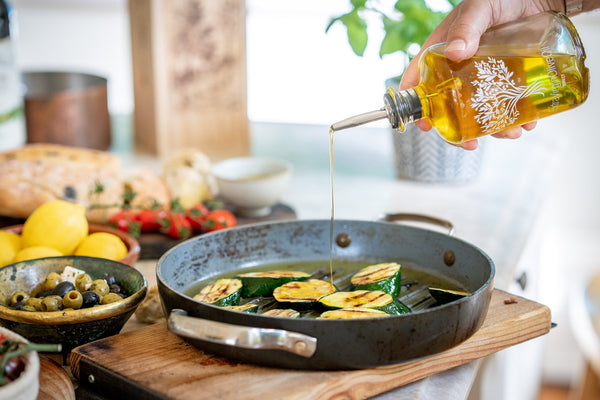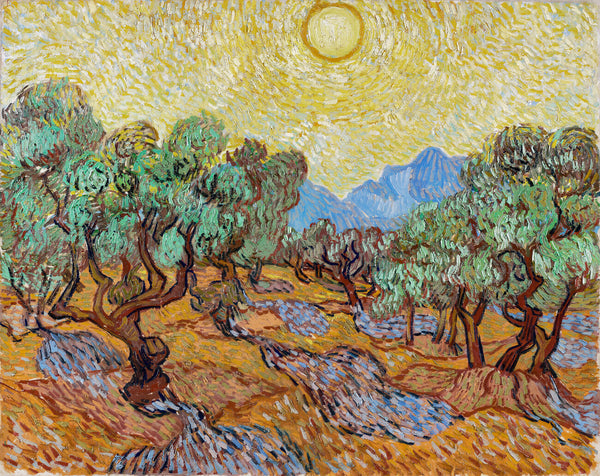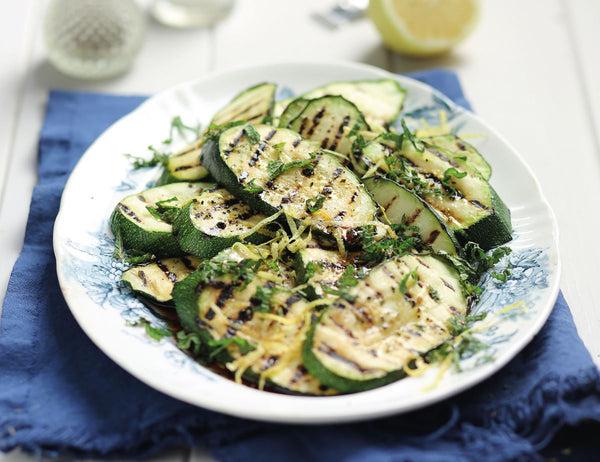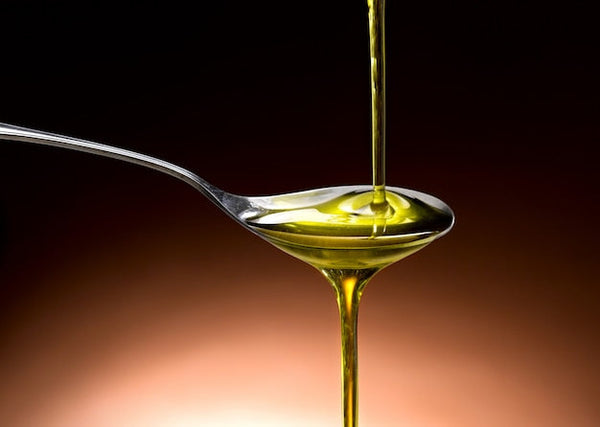The History and Origins of Olive Oil: A Journey Through Time
14/09/2023

Introduction to olive oil
Olive oil, often dubbed the "liquid gold," has been an integral part of human civilization for thousands of years. This versatile elixir has played many roles, from culinary staple to sacred substance. Let's delve into its deep-rooted history, examining its cultural, religious, and economic impact through the ages.
The Dawn of Extra Virgin Olive Oil
The Phoenicians: Pioneers of the Olive Trade
The Phoenicians were among the first to distribute olive oil. Their extensive maritime networks made them the FedEx of the ancient world when it came to transporting this precious commodity. Through their influence, olive oil began to be appreciated and sought after in diverse territories across the

Olive Oil in Ancient Cultures
Egypt and Olive Oil
In ancient Egypt, olive oil was a symbol of purity and a luxury reserved for the elite. It was used in religious rituals, cosmetics, and medicine. Pharaohs were often buried with jars of olive oil, a testament to its spiritual importance.
Greece and Olive Oil
For the ancient Greeks, olive trees were considered sacred, specifically dedicated to Athena, the goddess of wisdom. Olive oil found its way into nearly every aspect of Greek daily life, including cooking, lighting, religious ceremonies, and athletic competitions. Athletes would slather their bodies in olive oil, believing it enhanced their physical performance.
Rome and Olive Oil
The Romans took olive oil consumption to unparalleled heights but even they couldn’t buy extra virgin olive oil on subscription in the UK. Their empire's vastness led to large-scale olive plantations and sophisticated extraction techniques. Olive oil became so ingrained in Roman society that it was often used to pay taxes and even as a form of soap.

The Religious Significance
Judaism
In Jewish traditions, olive oil plays a central role in rituals like Hanukkah. The festival celebrates the miracle of the oil lamp in the Temple of Jerusalem, which burned for eight days despite only having a one-day supply.
Christianity
Olive oil holds a unique place in Christian rituals, especially sacraments like baptism and anointing of the sick. Its symbolism often aligns with core Christian values like purity, light, and

Islam
The olive tree is considered "blessed" in Islamic traditions and finds mention in several Quranic verses. Its oil is often used in Islamic medicine for its numerous health benefits.
Through the Middle Ages and Beyond
During the Middle Ages, the reach of olive oil extended through Islamic expansion and the Crusades. In the Renaissance, its culinary applications became an art form, and olive oil began to be viewed as a product with varied, sophisticated flavor profiles.
Notable Figures and Regional Variations
Throughout history, key figures have helped shape the olive oil industry. Among them are Nicolas Alphonse, who developed modern cold pressing techniques, and Thomas Jefferson, who recognized olive oil as the "richest gift of heaven."
As for regional variations, extra virgin olive oil is often golden and fruity, Italian variants can be herbaceous and green, while Greek olive oil typically has a strong, robust flavor. Understanding these differences adds an extra layer of appreciation for this versatile product.
Environmental Impact
As the demand for olive oil grows globally, sustainable practices are increasingly essential. Many producers are adopting eco-friendly farming techniques to reduce their environmental footprint. Some are even returning to traditional methods, like hand-picking olives, to ensure both quality and

Conclusion
The history of olive oil is as rich and complex as its flavor profile. It has evolved from a simple culinary ingredient to a multifaceted symbol of culture, religion, and economy. Today, its uses extend beyond the kitchen, influencing sectors like beauty, healthcare, and even sustainable energy.
From its humble beginnings in ancient civilizations to its modern-day global acclaim, olive oil has proven itself to be timeless. Its enduring allure and versatile applications make it a substance that is sure to continue fascinating and nourishing humanity for generations to come. For more insights, visit our extra virgin olive oil website UK.




